
Paul Benjamin Auster was an American writer, novelist, memoirist, poet, and filmmaker. His notable works include The New York Trilogy (1987), Moon Palace (1989), The Music of Chance (1990), The Book of Illusions (2002), The Brooklyn Follies (2005), Invisible (2009), Sunset Park (2010), Winter Journal (2012), and 4 3 2 1 (2017). His books have been translated into more than 40 languages.

Life: A User's Manual is Georges Perec's most famous novel, published in 1978, first translated into English by David Bellos in 1987. Its title page describes it as "novels", in the plural, the reasons for which become apparent on reading. Some critics have cited the work as an example of postmodern fiction, but Perec preferred to avoid labels and his only long-term affiliation with any movement was with the Oulipo or OUvroir de LIttérature POtentielle.
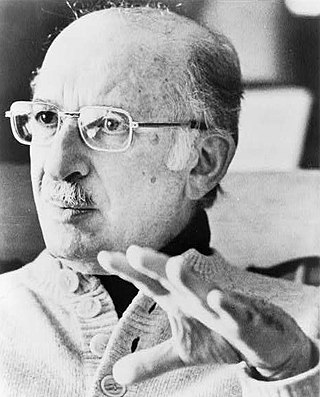
Bernard Malamud was an American novelist and short story writer. Along with Saul Bellow, Joseph Heller, Isaac Bashevis Singer, Norman Mailer and Philip Roth, he was one of the best known American Jewish authors of the 20th century. His baseball novel, The Natural, was adapted into a 1984 film starring Robert Redford. His 1966 novel The Fixer, about antisemitism in the Russian Empire, won both the National Book Award and the Pulitzer Prize.

Jacqueline Susann was an American novelist and actress. Her novel Valley of the Dolls (1966) is one of the best-selling books in publishing history. With her two subsequent works, The Love Machine (1969) and Once Is Not Enough (1973), Susann became the first author to have three novels top The New York Times Best Seller list consecutively.

Moon Palace is a novel written by Paul Auster that was first published in 1989.
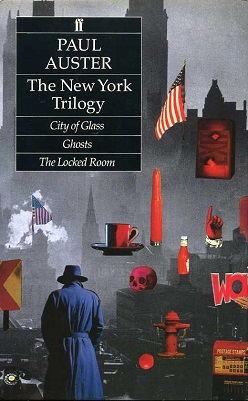
The New York Trilogy is a series of novels by American writer Paul Auster. Originally published sequentially as City of Glass (1985), Ghosts (1986) and The Locked Room (1986), it has since been collected into a single volume. The Trilogy is a postmodern interpretation of detective and mystery fiction, exploring various philosophical themes.

Election is a 1999 American black comedy film directed by Alexander Payne from a screenplay by Payne and Jim Taylor, based on Tom Perrotta's 1998 novel of the same name.

Thomas R. Perrotta is an American novelist and screenwriter best known for his novels Election (1998) and Little Children (2004), both of which were made into critically acclaimed, Academy Award-nominated films. Perrotta co-wrote the screenplay for the 2006 film version of Little Children with Todd Field, for which he received an Academy Award nomination for Best Adapted Screenplay. He is also known for his novel The Leftovers (2011), which has been adapted into a TV series on HBO.
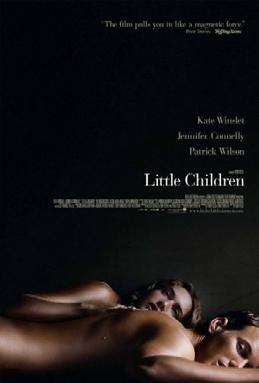
Little Children is a 2006 satirical melodrama film directed by Todd Field, based on the 2004 novel by Tom Perrotta who co-wrote the screenplay with Field. It follows Sarah Pierce, an unhappy housewife who has an affair with a married neighbor. Also starring are Jennifer Connelly, Jackie Earle Haley, Noah Emmerich, Gregg Edelman, Phyllis Somerville, and Will Lyman.

The Invention of Solitude is Paul Auster's debut memoir, published in 1982. The book is divided into two parts. The first part, Portrait of an Invisible Man, is about the sudden death of Auster's father. The second part, The Book of Memory, is a narrative in the third person.

Molloy is a novel by Samuel Beckett first written in French and published by Paris-based Les Éditions de Minuit in 1951. The English translation, published in 1955, is by Beckett and Patrick Bowles.
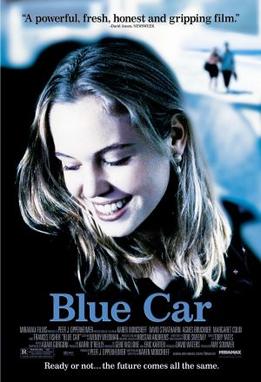
Blue Car is a 2002 American drama film directed and written by Karen Moncrieff. It was the first film she directed and wrote. The film stars David Strathairn, Agnes Bruckner, Margaret Colin, and Frances Fisher.

Akhil Sharma is an Indian-American author and professor of creative writing. His first published novel An Obedient Father won the 2001 Hemingway Foundation/PEN Award. His second, Family Life, won the 2015 Folio Prize and 2016 International Dublin Literary Award.

The Abstinence Teacher is a 2007 novel by American author Tom Perrotta. It tells the story of Ruth Ramsey, a divorced sexual education teacher who lives in suburban New Jersey and comes into conflict with the town's conservative population. According to Perrotta, it is "all about sex education and the culture wars." He was inspired to write the novel after reading of the influence of evangelical voters on the 2004 presidential election, stating, "I did feel somewhat inadequate as a novelist, just like I'd missed something huge happening in this country. I really did set out to kind of investigate that world." The novel also touches on other issues such as homophobia and sexism in the suburban setting.

Silence: Lectures and Writings is a book by American experimental composer John Cage (1912–1992), first published in 1961 by Wesleyan University Press. Silence is a collection of essays and lectures Cage wrote during the period from 1939 to 1961.
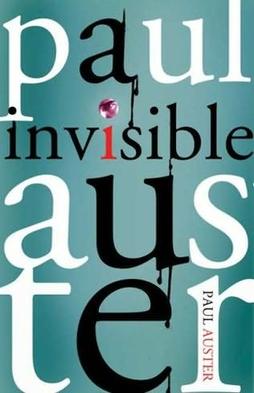
Invisible is a novel by Paul Auster published in 2009 by Henry Holt and Company. It was Auster’s fifteenth novel. The book is divided into four overlapping parts, told by three different narrators.

Sunset Park is a novel by Paul Auster published in November 2010.

The Brooklyn Follies is a 2005 novel by Paul Auster.

The Leftovers is an American supernatural drama television series created by Damon Lindelof and Tom Perrotta that aired on HBO from June 29, 2014, to June 4, 2017. Based on Perrotta's 2011 novel, the series begins three years after the "Sudden Departure", a global event that resulted in 2% of the world's population disappearing. The lives of police chief Kevin Garvey and his family, along with grieving widow Nora Durst and her brother, Reverend Matt Jamison, are the focal points of the series as they struggle to adjust to life after the Departure.
Laura Miller is an American journalist and critic based in New York City. She is a co-founder of Salon.com.



















